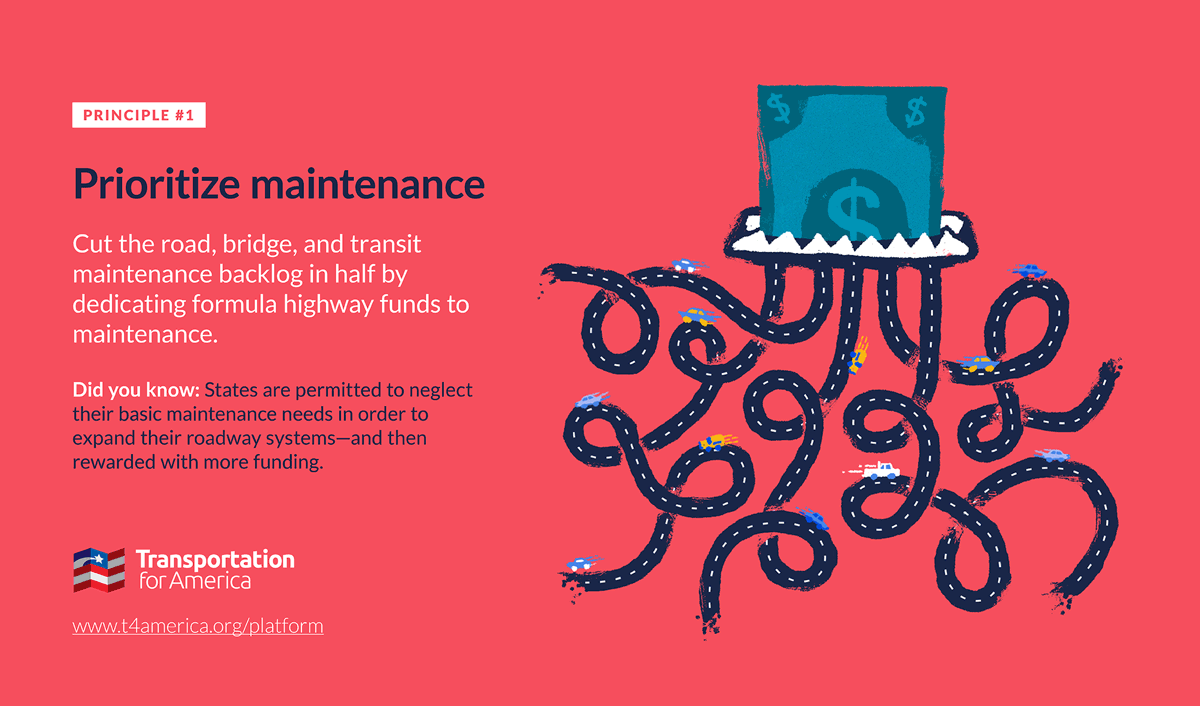Posts Tagged "START network"
California prioritizing repair, transit investments, and walking & biking with new gas tax increase
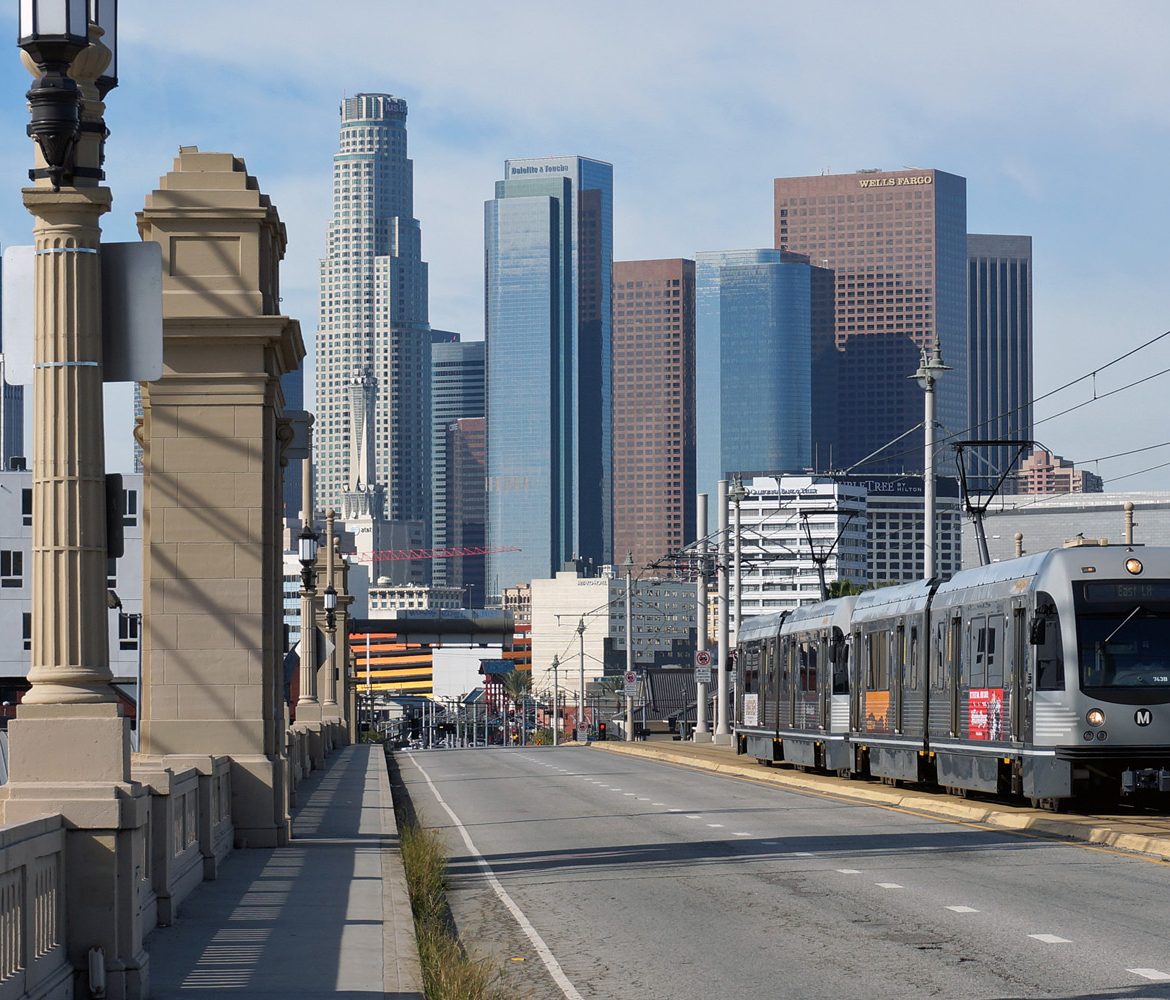
California could be the next state to raise new revenues to invest in transportation, and unlike most states doing so since 2012, CA lawmakers are prioritizing repair and pledging billions toward transit, safe streets for walking and biking, and an overall multimodal approach to solving the state’s transportation challenges.
How are states making transportation a key driver of their economic development agendas? [Webinar]
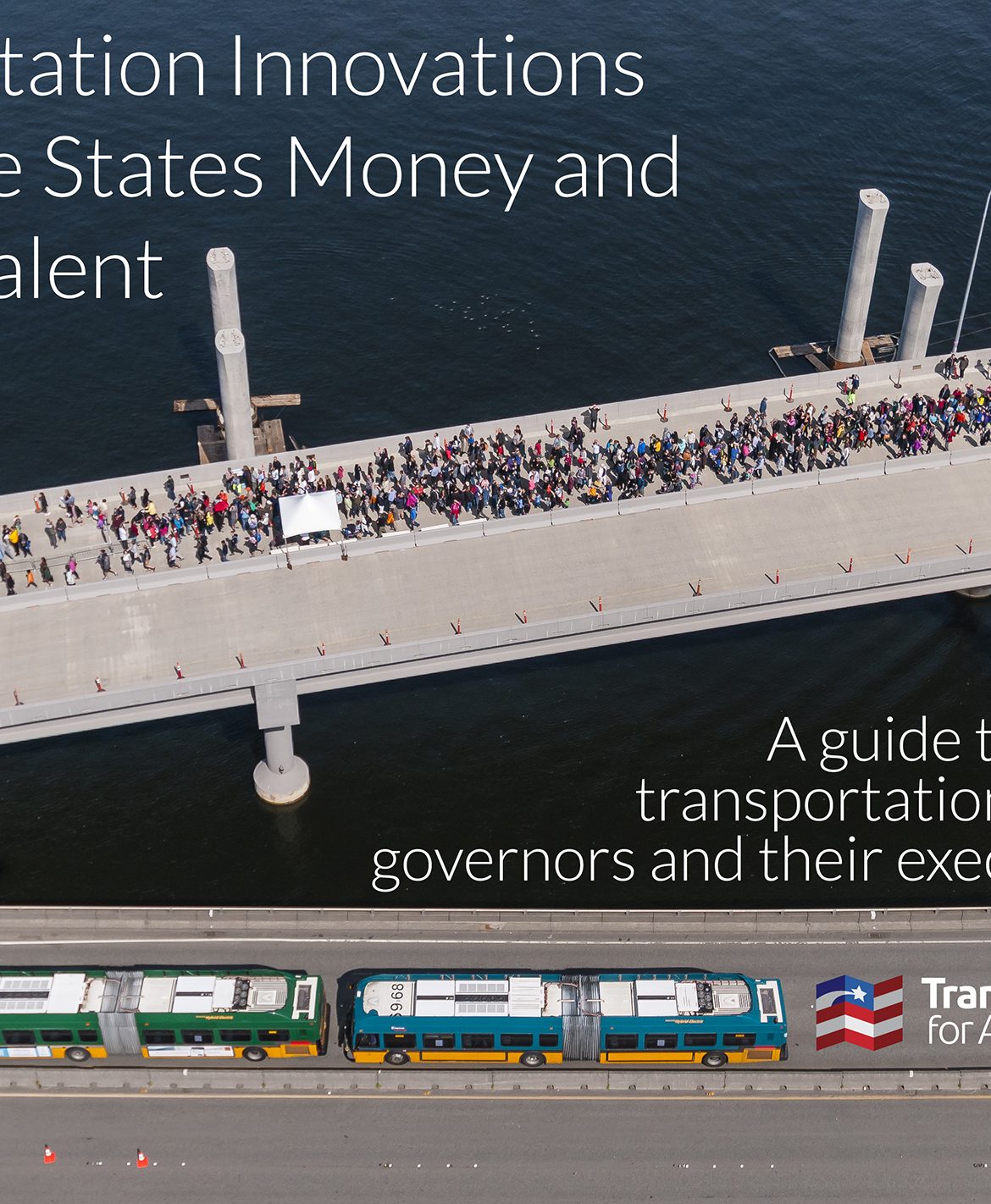
Join us in two weeks as we explore how two states have made transportation a key piece of their economic development agendas and have focused state funds on cost-effective investments in transportation.
Maryland attempting to bring accountability & transparency into process for selecting transportation projects
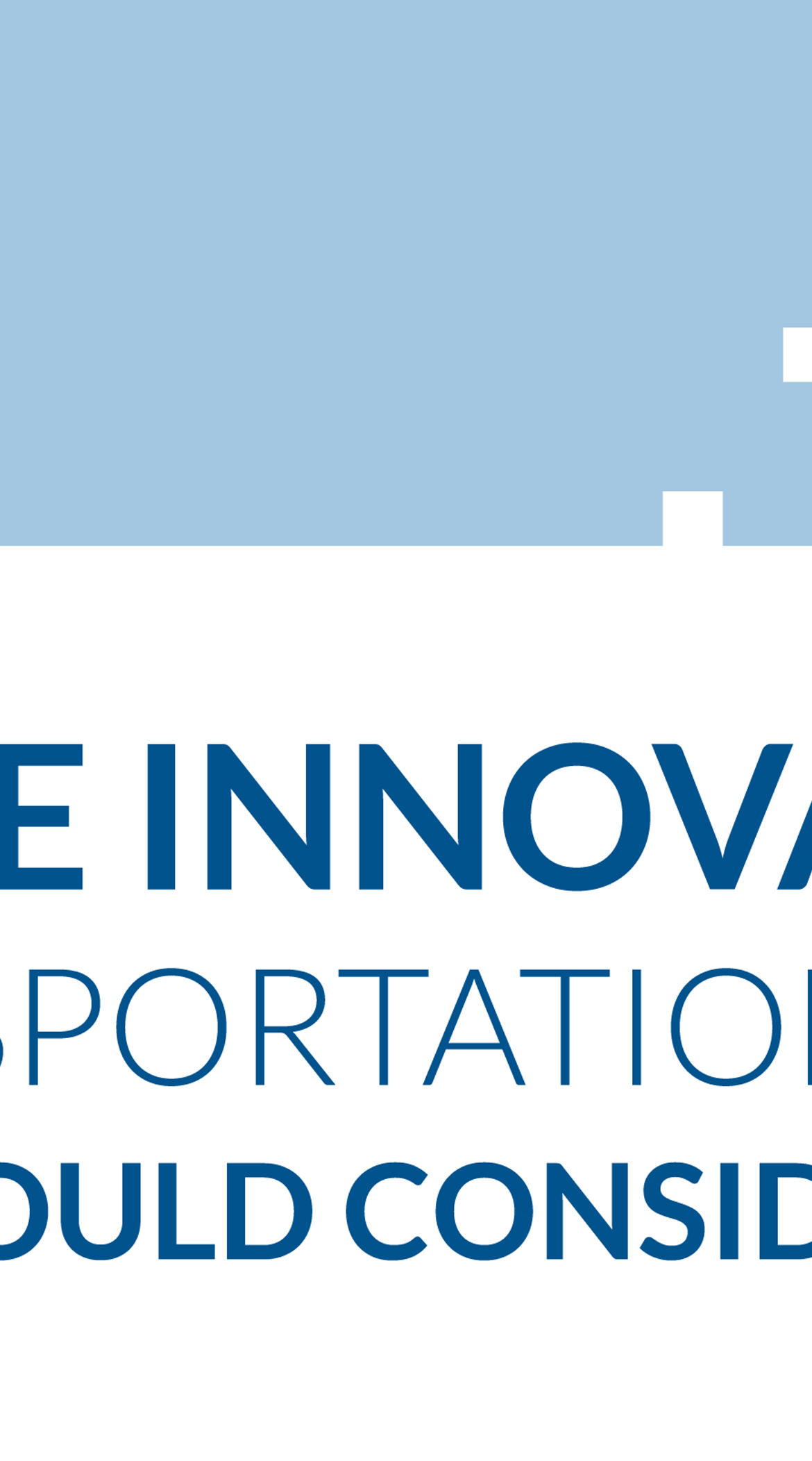
Maryland is attempting to join the growing movement of states trying to ensure that transportation projects are selected and built on their merits in a more transparent process. T4America testified today in favor of a bill that would move the needle in that direction.
Louisiana legislature makes a paradigm shift to better prioritize transportation dollars and restore public confidence
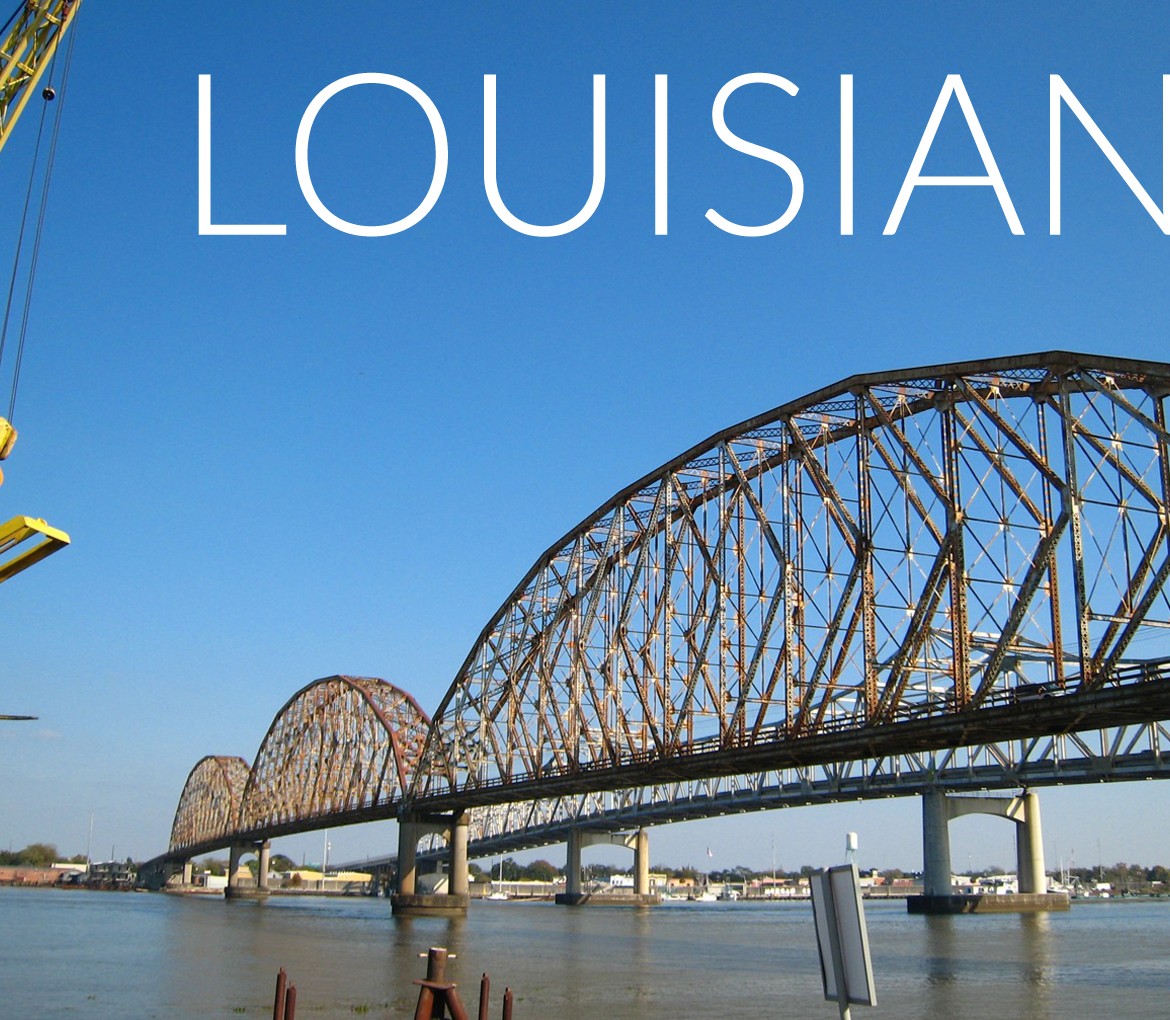
Raising new state funds for transportation can be a tough sell, especially if taxpayers don’t have any faith in the process for spending the money already available. Making that process more transparent, accountable and understandable can be a smart first step to increase public support for raising new transportation funding — one hope behind a bill in Louisiana that cleared the state House and Senate by unanimous votes last week.





